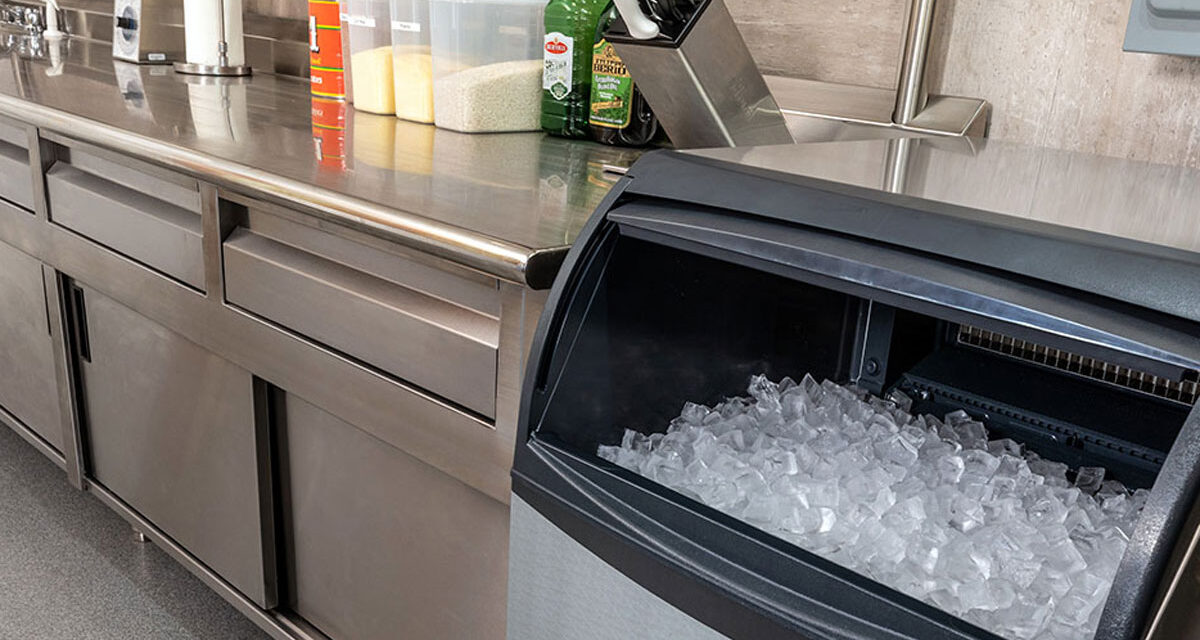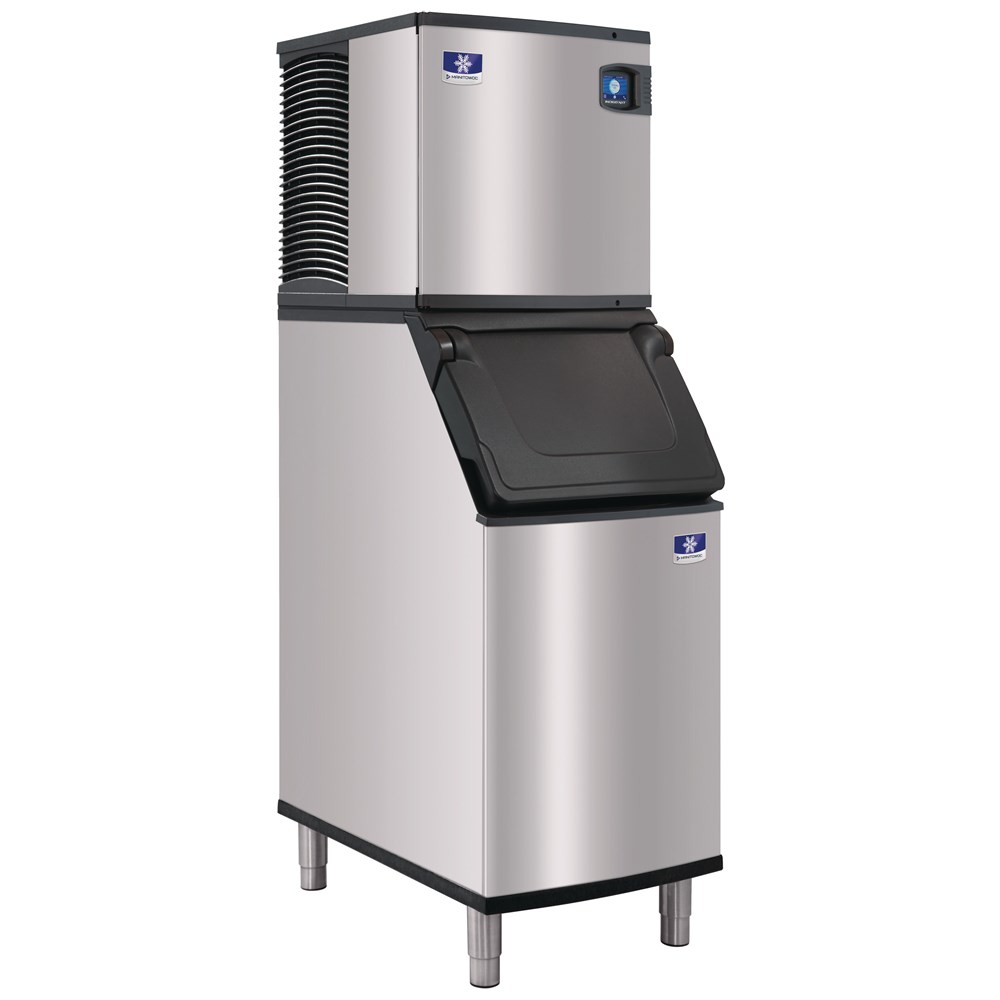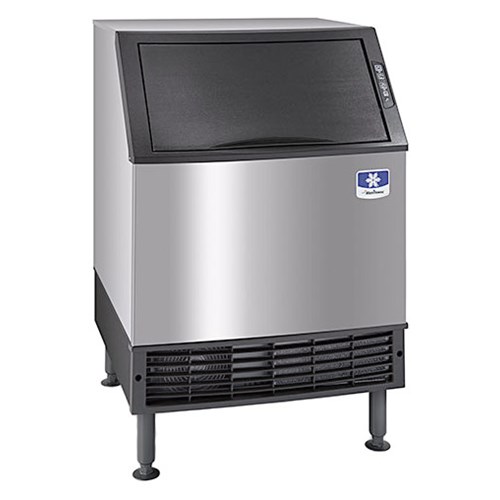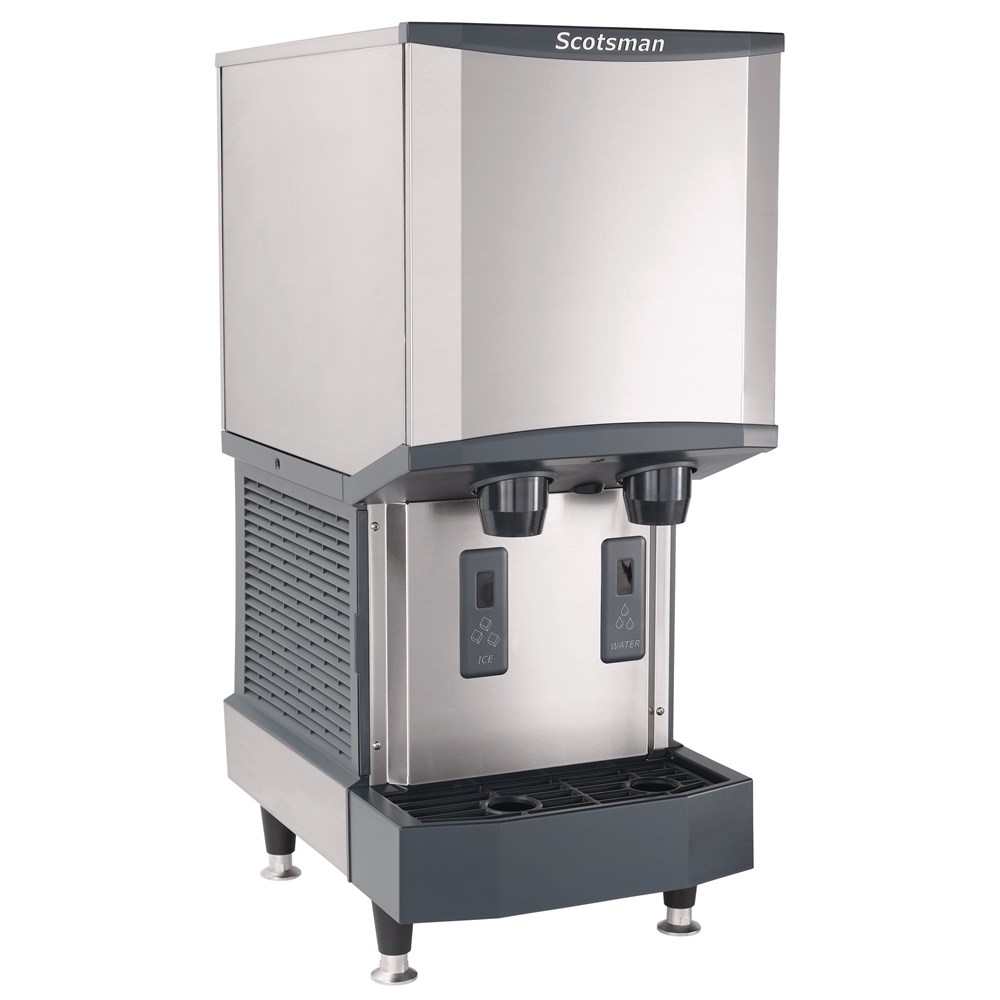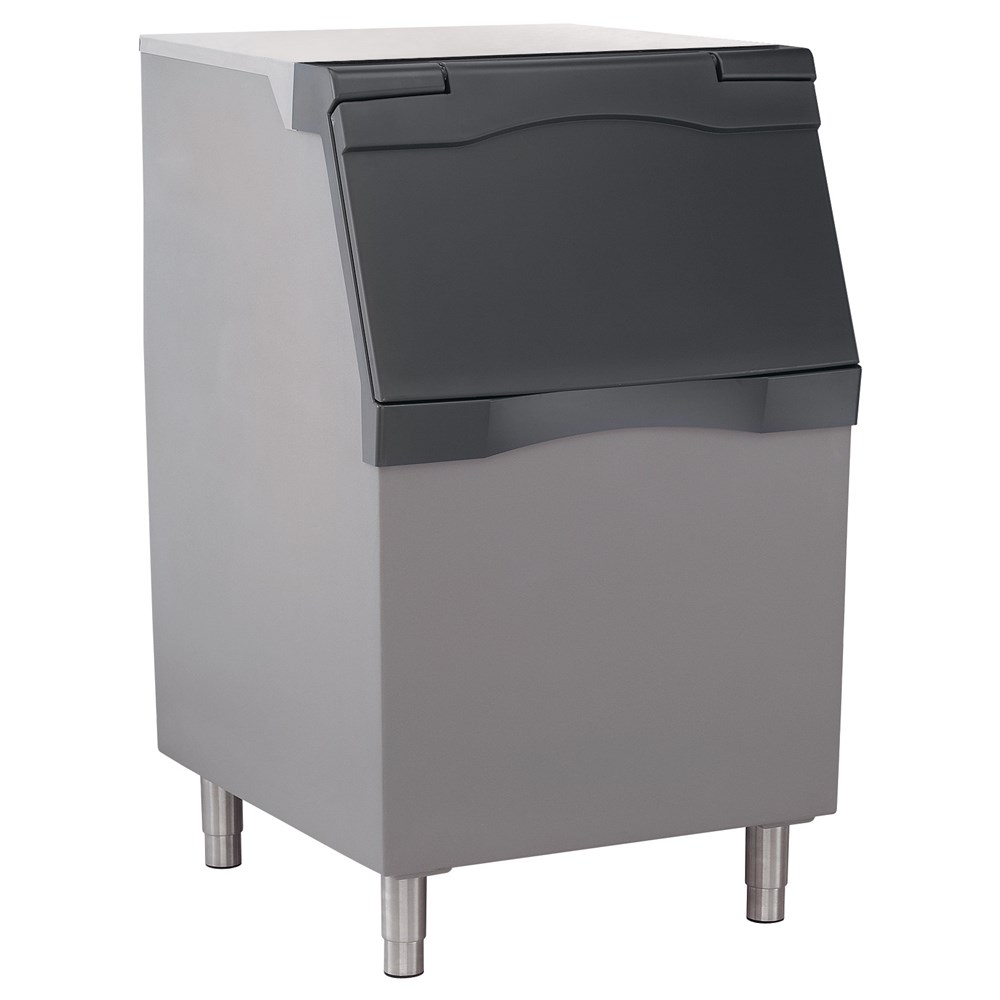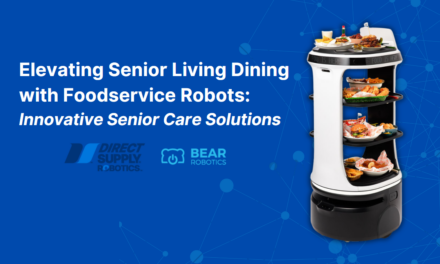It’s easy to overlook the role a hospital ice maker plays in your facility. But when you need it for beverages, buffet lines or even therapy, you want to ensure you have a high-quality commercial ice machine that’s up to the challenge. Cool down with eight key factors to consider when selecting the best commercial hospital ice machine for your patients, staff and healthcare facility.
1. Hospital Ice Machine Sanitation & Maintenance
Regular hospital ice machine maintenance and cleaning will prolong equipment life and increase your ROI. Look for the following features for hospital ice machine cost effectiveness:
Air Filter Placement: Look for a commercial ice machine with an air filter and components that can be easily accessed from the front or side to make routine cleaning easier for staff. Some models offer cleanable, reusable filters.
Auto-Clean: Auto-clean settings ensure that the machine is cleaned consistently. Some machines also include bins made from antimicrobial materials. Consider which parts need to be cleaned most frequently and if they are easily removable or dishwasher safe.
Alert System: Some hospital ice machines feature an alert system that notifies the end user of the operating status, including when to clean and if there is a water shortage.
Auto-Purge: This feature controls the amount of scale buildup between cleanings by purging mineral laden water out of the machine.
Ultra Violet Lights: This feature creates “active air” which passes over exposed food zone components and inhibits the growth of viruses, bacteria, yeast and other common microorganisms. Only a simple UV bulb change is recommended once a year to maintain effectiveness.
Ozone: This feature prevents the growth of bacteria, yeast and mold in your hospital ice maker by keeping the machine’s interior, storage bin, dispenser, and drains clean.
2. Types of Hospital Ice: Cubelets, Flakes, and Nuggets
Cube ice is hard and clear. Depending on the size you select, cubes can be difficult to chew and can pose a choking hazard. Cube ice melts the slowest.
Flake ice consists of small, soft pieces. It melts fairly quickly but is perfect for displaying products and hand scooping into drinks.
Nugget ice (or sonic ice) is smaller and softer than cube ice. It is still an effective coolant and is hard enough to be dispensed without hand scooping, but soft and small enough to chew.
Hospital Ice Maker Tip: Nugget ice is great for patients who like to chew ice as it’s less of a choking hazard. It can also be used in cold therapy, in beverages and to make blended drinks. When selecting a machine for your hospital, keep in mind nugget ice may be referred to differently across brands: Scotsman and Manitowoc call it chewable nuggets and Hoshizaki calls it flaked ice or cubelets.
Whether you’re searching for a water and ice maker dispenser for your break room, patient floors, or self-service kitchen, consider production capacity, touch free dispensing and size when reviewing these chewable ice type machine options:
- Hoshizaki Ice and Water Dispensers for Cubelet Ice
- Manitowoc Ice & Water Machines for Nugget Ice
- Scotsman Meridian Ice and Water Dispensers for Nugget Ice
3. Types of Commercial Hospital Ice Machines: Floor-Standing, Undercounter, or Countertop
Floor-standing commercial ice machines (also called modular ice machines) can usually generate enough ice to be the primary source of ice for most facilities. Ice production can be limited by available ice storage space, so a floor-standing machine should be coupled with a properly sized bin or dispenser. Hotel-style bins offer touch-free dispensing and may have a built-in cuber head.
Undercounter commercial ice machines take up up less space and feature built-in ice bins but are generally best suited for supplemental ice production or as a primary source for smaller facilities.
Countertop commercial ice machines are appropriate for low-volume ice requirements and can be used in nurses’ stations, patient self-service locations and therapy rooms. Touch-free options are available to reduce the risk of cross-contamination but require a specific hand placement on the drinking glass to activate the flow of ice.
4. Maximum Production: Amount of Hospital Ice Needed
The listed maximum ice production is the most amount of ice a commercial ice machine is able to produce in 24 hours (based on 70°F air and 50°F incoming water temperature). Estimated maximum production capability of a commercial ice machine can be lowered by factors including:
- A warm or overcrowded location
- Warm incoming water
- Small storage bin
Typically, you can estimate actual ice production at 85% of the unit’s listed maximum ice production. Hospital cafeterias use about 1lb of ice per person per day and an average of 10 lbs of ice for every patient bed.
5. Hospital Ice Maker Bin System and Capacity
Ice machine bins come in numerous options to help you store and dispense ice such as built-in bins; built-in dispensers; add-on bins; and add-on dispensers
When determining what sort of bin you need, look for a storage capacity greater than or equal to 75% of the machine’s production capacity. This prevents the storage bin from filling up prematurely and interrupting ice production.
In self-service locations where hospital patients and non-food service staff have access to the commercial ice machine, touch-free dispensing bins should be used to protect ice from contamination.
6. Ice Maker Cooling System Options: Air-Cooled or Water-Cooled

Air-cooled commercial ice machines typically require 8″ of clearance on the sides and top to operate properly, so they are not a good choice in smaller spaces or in hot kitchens. In temperatures over 90°F, air-cooled machines will not reach full production capacity. Air-cooled units can cost less to operate over the life of the machine, saving money in the long run. Some air-cooled units are ENERGY STAR® qualified.

Water-cooled commercial ice machines use a once-through water system where the water used to cool the machine is subsequently dumped down a drain. This wastes a significant amount of water and may result in a higher water bill. However, water-cooled machines work well in tight spaces without ventilation, such as a closet or in a hot kitchen with temperatures over 90°F.
Regulatory Tip: If you are considering a water-cooled machine, be sure to check your local regulatory codes. Some states prohibit the use of water-cooled machines.
7. Water Treatment Systems for Hospital Ice Makers: Filter or Scale Elimination
70% of commercial hospital ice machine maintenance issues are related to water. The proper use of water filters and scale reduction systems can help eliminate hospital ice machine maintenance problems.
Filter systems reduce sediment and chlorine from the water, resulting in equipment protection and cleaner, better-tasting hospital ice. Regularly replace filters as recommended to maximize system performance for your hospital ice machines.
Scale elimination systems reduce scale throughout your kitchen, resulting in fewer service calls, lower maintenance costs, improved energy utilization and longer hospital ice machine life.
8. Hospital Ice Machine Certifications
Certifications can help you determine the best commercial hospital ice machine that meets your needs for safety, performance, maintenance and efficiency.
Underwriters Laboratories (UL) tests products and certifies that they meet established safety standards.
The National Sanitation Foundation (NSF) is an independent nonprofit organization that certifies products meet standard for design, performance and cleanability.
ENERGY STAR® products are independently certified to save energy, save money and protect the environment. Depending on the type of machine, ENERGY STAR ice machines are 10% to 16% percent more energy efficient and 20% more water efficient
Freeze! Stop Searching & Start Finding the Best Hospital Ice Makers with Direct Supply
Looking for a new hospital ice machine? Rely on Direct Supply, healthcare’s #1 supply chain, for a comprehensive commercial hospital ice maker selection, delivery and installation and personal service.
Shop our full selection of quality commercial ice machines or contact us to discuss options for your facility.
Commercial Hospital Ice Machine FAQ:
HIDDEN - DEFAULT CLOSED ACCORDIAN
The three different types of commercial ice machines are Floor-standing commercial ice machines, Undercounter commercial ice machines, and Countertop commercial ice machines.
What are the different types of hospital ice machines?
The three different types of commercial ice machines are Floor-standing commercial ice machines, Undercounter commercial ice machines, and Countertop commercial ice machines.
How do you determine which commercial ice bin storage bin to use?
When determining what sort of bin you need, look for a storage capacity greater than or equal to 75% of the machine’s production capacity. This will prevent the storage bin from filling up prematurely and interrupting ice production.
What are the different types of ice machine ice cubes?
The different types of commercial ice machine ice cubes are cube ice, flake ice and nugget ice. Each ice cube type provides its own unique benefits. Soft and chewable ice is best suited for healthcare patients.
1 Commercial Ice Machines, Energy Star (2023)
